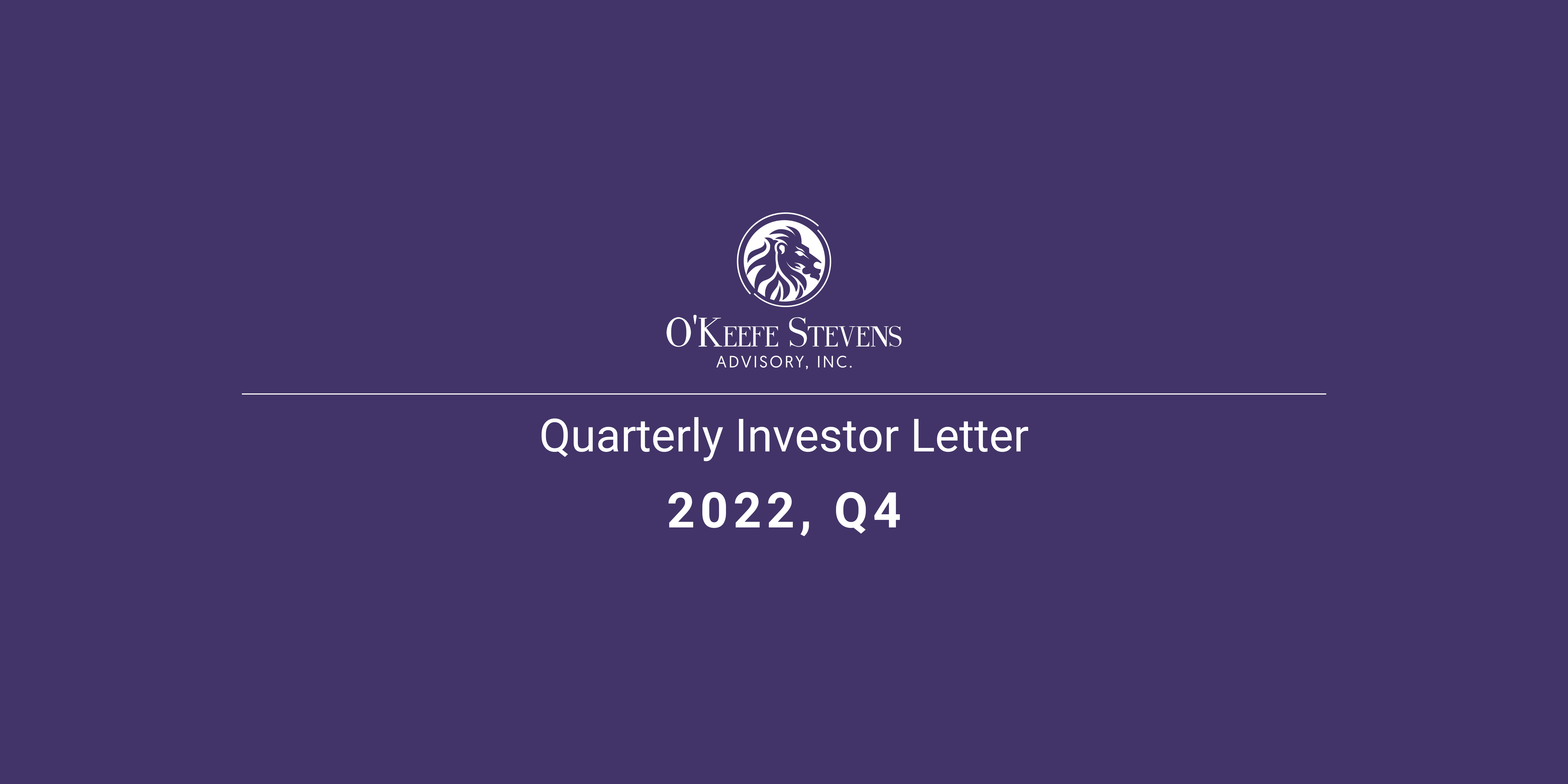Quarterly Investor Letter Q4 2022
Author: Dominick D’Angelo
Lessons From 2022
The market and our portfolios had a challenging year as interest rates rose, and deteriorating fundamentals cut our largest position, NVDA, in half. Since our initial purchase in 2013, NVDA has seen its stock decline 50% one other time, back in 2018. The best-performing businesses and stocks do not go up and to the right. Mr. Market gets moody, and even one of the highest-quality companies in the world is not immune. Drawdowns of this magnitude are challenging to stomach, even though the stock is up 50x in less than ten years. While we consider ourselves old-school value investors, we continue to hold this fantastic company even though, optically, it does not appear cheap. Our confidence in Jensen remains, and while gaming is no longer in hyper-growth mode, the Data Center segment continues to grow. AI, Automotive, and other small but rapidly growing industries are the next leg of the story. Chris Mayer discusses the position in greater detail with commentary from our CIO, Peter O’Keefe. Click here to read the article.
One of the key tenants at O’Keefe Stevens is investing alongside clients. We do not hold outside brokerage or personal trading accounts. We own what clients own. During the speculative mania of 2020-2022, receiving calls from clients about Bitcoin, TSLA, and SPACs that were going up seemingly every day, questioning why we are not involved. We pride ourselves on avoiding speculation and remaining true to our bottom-up, fundamental business owner principles. Looking foolish at times is part of the job. Those looking to be right every moment ought to find other careers. As value investors, the past 5+ years have been challenging, though given the status of the value community, we are grateful to still be in the game. Companies funded during the zero interest rate environment, with business models requiring access to capital, quickly realize how vital cost management, cash flow, and balance sheets are to be successful throughout an economic cycle. Our holdings should not require access to capital in the near term to fund business operations. We own a concentrated portfolio of high-quality, low-valuation businesses that have been left for dead. As excess’s come out, we expect our companies and stocks to be beneficiaries. We are excited about 2023.
Several positions within the portfolio deserve some reflection; however, the one deserving the most attention is WBD. Not surprisingly, it was one of the worst-performing stocks in our portfolio over the past year.
Warner Brothers Discovery (WBD) – One concept learned from Jeremy Raper at Raper Capital (@Puppyeh1 on Twitter) is “when there’s a massive pivot in biz model and under-delivery vs. clear IPO targets, it’s generally a big red flag.” While WBD is not a recent IPO, it went through a dramatic business model change. I recall two examples of companies that pivoted strategies.
Angus “Gus” Kelly, CEO of Aercap(AER), preached how the accelerated depreciation schedule of planes caused accounting earnings to understate economic profits and the balance sheet understated the fair value of assets. AER’s assets, new tech, and narrow body were some of the most desirable in the industry. When Aercap acquired GECAS in 2021, Gus discusses the BV and accounting reasons behind the transactions and how they were acquiring these planes at less than BV, even though they could have repurchased shares at a discount to BV. They also acquired 300 helicopters, historically a business line the company did not find favorable. When AER acquired these assets, it was no longer apparent that the company’s accelerated depreciation schedule was unique and gave them an edge. Nor was the company acquiring assets that were in line with the previously discussed business model. This change in strategy should cause one to reassess the thesis.
The second was GAN’s acquisition of Coolbet, a B2C Sportsbook. Previously, a high-margin, growing SaaS B2B company shifted into the competitive consumer sports betting world. This pivot degraded the business model and future profitability. The go-forward business economics were likely much worse than the previous standalone business.
Since the sportsbook acquisition, GAN is down 93%. While I suspect the B2B performance has underperformed expectations, this business model pivot played a role. AER has fared better, down only 8% since the GECAS transaction closed. It’s my mistake to have not used the lessons to draw parallels to a portfolio holding WBD.
WBD finished a brutal 2022, down 62%. In April 2021, Discovery announced the acquisition of Warner Media for ~$100B. Today, the EV of the combined entity stands at $83B. It’s obvious listening to David Zaslov discuss the challenges with the merger, implying Discovery overpaid for the assets. Discovery had previous success with the Scripts merger. Our initial reaction was to think a similar result would occur. However, it should have been apparent the difference between them.
Zaslov, on the Q4 2019 earnings call, three months before the Warner Media / Discovery deal, said, ” …the economics of our model. Our content is a small fraction of what’s taking place on the other side of the ledger. The overbid, competitive, spiraling out-of-control costs for scripted, new and repeats is astounding. That is not who we are. We aren’t paying hundreds of millions of dollars for content, original or repeats, that we can’t even own.” Discovery would succeed in the streaming wars due to unscripted content’s cost advantage. Three months later, they acquired an almost exclusively scripted business, valued over 2x legacy Discovery, becoming what Zaslov said it would not.
Maybe hindsight is 20/20, and the only reason to write about this is how much the stock is down. A business strategy transformation that opposed recent commentary should have raised more red flags than it did. Additionally, we were aware but did not realize how significant an impact the legacy AT&T shareholder’s selldown of WBD shares would be, creating a sizable headwind.
We continue to own and believe the future of Warner Brothers Discovery is bright. The company issued long-term fixed-rate debt at absurdly low-interest rates, which is a saving grace. The stock is incredibly cheap, the company can repurchase debt at a discount to where they issued it just a year ago, and the business should start gushing cash flows in the coming quarters. In a few years, I hope to write how ill-timed and successful this investment was.
Predictions For 2023
- One of our top 25 holdings gets acquired
- A benign M&A environment over the past several quarters due to increased uncertainty, and rising interest rates, returns. A core holding is acquired. Placing bets on which one(s) this happens to, DFIN, CSCCF, and ICLTF top the list. A dark horse pick and one that might need to happen depending on the state of the Real Estate market is FPH. Five Point has debt maturing in 2025. Should management get the opportunity to sell a large plot of land to pay off this debt, bankruptcy risk disappears, and the value of the land is worth multiples of the current stock. The question is not whether the business is cheap; instead, do existing shareholders have the opportunity to realize the value of the land?
- TSLA is a sub $200B market cap by the end of 2023
- One poster child of the speculative environment is TSLA. Led by visionary Elon Musk, is not a technology company but an auto manufacturer. A capital-intensive, low ROIC business that should trade at a multiple far lower than the market. The first-mover advantage gave Tesla a dominant market share in the EV space declines as competitors take share and hurt TSLA margins and profitability. From questionable accounting practices to a full self-driving scam to a declining competitive advantage. A stock down 71% by itself does not make it cheap.
- Crypto, the final blow
- Tether, one of the last remaining stablecoins, breaks its peg and is the nail in the coffin of the crypto landscape. We’ve seen it before, a run on deposits, the unknown assets backing deposits, and a lack of balance sheet transparency. We are happy to never put a dime of client money in this narrative-driven speculative rat poison. (Thanks, Charlie)
Goals For the Year
Chat more with management. Some investors shy away from talking with management teams. For others, it’s an integral part of their process. We hold positions for several years. We should get familiar with those that we are partnering with. The highlight of 2022 was spending a night with the Greenfirst Forest Products management team. I know more about Canadian lumber than I ever imagined. These meetings give us added conviction in the position.
Discuss positions with other investors. One of the best decisions I made was writing publicly about ideas. Sure, it’s embarrassing pitching a stock that subsequently declines 40%; however, the added feedback is invaluable and adds a level of accountability to consistently update the position and thesis. I write on Sumzero and Seeking Alpha. Multiple investors reached out to discuss write-ups. I thoroughly enjoyed each conversation and hope to have more in 2023.
Along a similar line, engaging with other members of FinTwit. Searching $XYZ and finding any commentary about the stock or news is helpful. Some of the brightest investors are on Twitter, can’t hurt to see what they think about ideas; in other cases, I hope to provide helpful information. Our Twitter handle is @OSA_Rochester
Portfolio Top 5 Holdings
At the end of the year, our top 5 holdings represented ~37% of assets, with NVDA representing almost 13% of the portfolio. The remaining four include BKRIF, QCOM, AMGN, and GLW. Bank of Ireland was one of the best performers in the portfolio, up 60% on the year even though it was flat through the end of August. The Irish government exited its stake in the Bank in September, ending 13 years of government involvement. The full return to private ownership and subsequent stock performance is not coincidental. A similar event could occur when AT&T shareholders complete the selling of WBD.
Disclaimer
This document is for informational purposes only. O’Keefe Stevens Advisory is not providing any investment recommendations with the publishing of this document, and no firm performance data is included in this document.



No responses yet